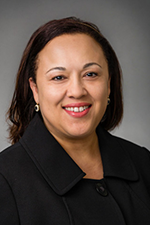June 2, 2020
America, the Arts and Racial Injustice
Our nation continues to reel from deepening outrage over the murders of numerous unarmed black men (and women), most recently George Floyd. Peaceful demonstrations and violent riots bear witness to the devastating impact of long-standing structural and systemic racism, a painful part of the birthright we share as Americans.
We all deserve a country that values our existence. America’s beauty, strength and greatest potential lie in our diversity. As I personally wrestle with why these values aren’t universally held, I’m reminded of a piece of NASAA’s own history during a time of significant social and political turmoil.
During NASAA’s 2016 Assembly, in the early months of our policy level work to begin addressing diversity, equity and inclusion, I shared an account of our association’s first formal action. It feels fitting to return to it today.
NASAA’s first meeting took place on June 10, 1968, four days following the assassination of Sen. Robert F. Kennedy. Lyman Field was the inaugural chairman of our Assembly; he was also chairman of the Missouri State Council on the Arts and a decorated World War II officer. At this convening of our newly formed North American Assembly of State and Provincial Arts Agencies (NASAA’s original name), the leadership set forth a vision, placing the arts in context with difficult moments of the civil rights movement. It passed this resolution:
In view of Senator Robert F. Kennedy’s death by assassination and the agonizing bewilderment for American society that this act provokes, the Executive Committee of the North American Assembly of State and Provincial Arts Agencies resolves to pursue the principles of awakening society to the potential of life that the arts offer.
Violence, bloodshed, and wasting of the human spirit in these times seem almost inextricably woven into the fabric of our society. This latest event adds another sickening stain to an unimaginable chronicle of tragedy.
The Assembly does not feel that these wantonly destructive acts can be answered, much less solved, by increased law enforcement alone as some have already suggested.
What is needed is more opportunity for the full potential of life to be realized, respected, and enjoyed. The Assembly feels that the arts can help man to understand what he is in order that he may realize what he can become. The arts and the encouragement of the arts by all segments of society may not cure the excruciating pervasive problems of our society. They can, however, start the communication of understanding between all men of how great a gift life is and how joyous it is to behold in others.
The racial wounds that endure in America have deep roots. They’re historic, they’re current, they’re cumulative, and they have been laid bare at our feet. Our country hasn’t fully acknowledged this, and until we do, meaningful positive change can’t happen. As we look within and all around us to determine how to move forward, I invite you to consider the following:
- Listen across differences. As disheartening and devastating as this moment is, we must be resolved in a shared quest for meaningful change, and dialogue is the cornerstone for building that change. Both personally and professionally, dialogues across racial, political and other divides will be difficult and uncomfortable for all involved. Nevertheless, dialogue is critical. Honestly listening, learning and reflecting will help us to begin healing and equip us to humanize our individual and institutional decisions.
- Dismantle racism and all inequities in your work, and particularly within your grant-making portfolios. I see clear evidence of your journey and progress in this arena. As recently as the development of state arts agency guidelines for Coronavirus Aid, Relief and Economic Security (CARES) Act funding, I see examples of your attention and commitment to disenfranchised communities, including communities of color. All our communities need you to stay the course.
- Train your teams to recognize and interrupt racism and to navigate and mitigate the complex community level effects of repetitive trauma. Resources from the National Association of State Mental Health Program Directors, the Substance Abuse and Mental Health Services Administration and the Urban Institute can help, as can Trauma-Informed Philanthropy and Creative Placemaking and Community Safety.
- Employ the arts to start what NASAA’s founders called “the communication of understanding.” The arts offer our society special powers to help us recognize the experiences of others, to see complex problems in new ways, to perceive possibilities and to bridge divides. The power of the arts can help us shift the American story from a “chronicle of tragedy” into a new and powerful reality that realizes “the full potential of life to be realized, respected, and enjoyed” across our nation.
It is our shared responsibility to heal our democracy, and the arts have an important role to play in achieving an America that offers safety, prosperity and freedom to all.
In this Issue
From the President and CEO
State to State
- Oklahoma: Online Arts Curricula
- Puerto Rico: Cultura Virtual
- New Mexico: Veteran Artists Thank First Responders
Legislative Update
The Research Digest
Announcements and Resources
More Notes from NASAA
SubscribeSubscribe
×
To receive information regarding updates to our newslettter. Please fill out the form below.

